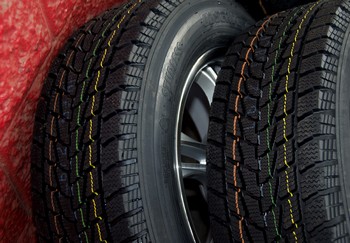“Which tire will serve me better? Winter tires, or all season tires?” Drivers around the world have been asking themselves this question for decades. So which tire is better? Which should you use? Let’s see.
Pros: All Season Tires
All season tires are usually made of harder rubber. All-season tires, unlike winter tires, are made of very durable rubber. They’ll last a long time, and will give you decent grip in most weather conditions. All season tires are good for dry and wet traction.
Recent technological improvements have provided a smooth and quiet ride on all season tires. The idea of ”one size fits all” entertains Americans greatly. You don’t need to constantly change tires to suit the season. All season tires perform much better in the cold months than typical summer tires.
Cons: Winter Tires
While they’re called “all-season tires,” they really should be called “three-season tires.” These tires don’t provide much traction in Winter ice and snow. In the colder months of the year, tires start to harden and it becomes difficult to grip the road. They don’t have the same number of cuts that regular winter tires have.
Pros: Winter Tires
These tires will keep you safe on ice and snow, as demonstrated in this video. Your winter driving safety will increase, while less stress will be placed on you and your car. Because you have better grip and stopping ability, your driving time in winter will also decrease.
Winter tires produce and a very grippy and soft ride. Once the temperature drops below about 45 degrees, the rubber compound starts to perform better than regular all-weather tires.
Cons: Winter Tires
Winter tires are not intended for use in warm weather. If you decide to use them in the summer months, your tires will start showing signs of wear very quickly. Just because you see wear and tear on your tires doesn’t mean they are poorly made. Normal winter tires should have no problem gripping the road in warm temperatures, but tire rubber just isn’t made for warm weather. If you decide to invest in snow tires, you will need to spend the time and money necessary to replace your tires, and you will also need a completely different set of tires.
Both types of tires can make a strong argument as to why one is better than the other. However, the truth of the matter is that while both have strong advantages over competitors, they also have glaring weaknesses. One thing I think we can all agree on, is that safety is one of the best investments anyone can make. Not just your car’s safety, but your own personal safety. Winter tires are smart to have in winter, and all season tires are safer in summer. The tires you choose to use are completely your choice. I would advise against sacrificing your safety to save a few dollars.








